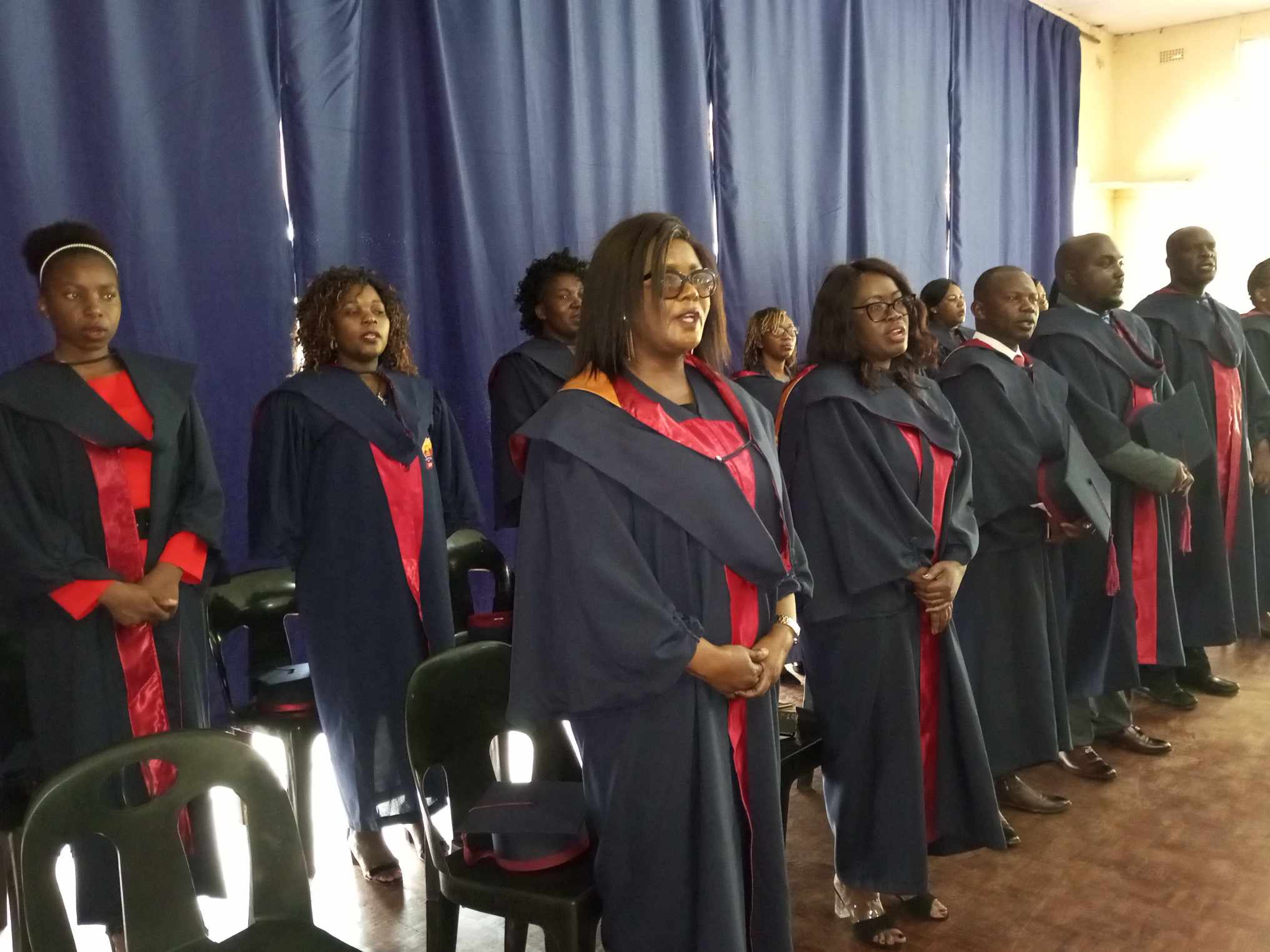|
Getting your Trinity Audio player ready...
|
Dr. Benjamin Emmanuel Katsvamutima, the Executive Director of the Chartered Institute Of Customer Relationship Management (CICRM) has underscored the fact that education is the passport to a bright future.
He made the remarks at the CICRM institute’s 10th Graduation Ceremony yesterday, 24th November 2022 at a colourful function in Harare.
The Chairman of the Consumer Protection Commission, Dr. Mthokozisi Nkosi; Dr. Bishop Chikuni, the Chairman of the Inter-Religious Association for Peace and Development Zimbabwe (IAPDZ); the Chairman of CICRM, Mr. Linos Dhire, and Captains of Industry were among dignitaries who graced the graduation ceremony.
“As we gather here to commemorate the 2022 edition of the Chartered Institute Of Customer Relationship Management, we must all remember that education is the passport to the future, for tomorrow belongs to those who prepare for it today.
“CIRMA institute excellence is an art won by visionary training and habituation. The Institute does not act rightly because it has virtue or excellence, but it rather has those because it has acted rightly. CICRM institute is what it has consistently and repeatedly done since its inception. Excellence, then, is not an act but a habit that our institute is known for in the regional industry,” Dr. Katsvamutima said.
A number of graduates testified how the course had positively impacted their work and the lives of people in the communities they serve.
Susan Chivonivoni, a nurse at Freda Rebecca Mine presented on the quality of care given to patients at Freda Rebecca Mine. She said she attended to complaints by clients when Freda Rebecca Mine closed the clinic as a measure to curtail the spread of COVID-19.
“During COVID-19, patients with cancer and other infections were barred from using the clinic. From my research, COVID-19 disturbed the quality of service, and clients were losing trust in the institution. As a solution to improve quality service, we encouraged patient engagement in service delivery,” Chivonivoni said.
Wellington Mutematsaka Chivi District Health Service Officer said following complaints that government healthcare practitioners were not handling clients in a customer-friendly manner, his research sought to address complaints about poor service delivery. His findings proved there is a need to improve the curriculum for nursing training to include modules on customer and public relations.
Elisha Marisa an examiner with local institutions researched poor transport services in Harare.
“I wanted to come up with solutions to reduce the challenges in a big way. I focused on the ripple effects of poor transport services and their impact at a personal, institutional, and community level. I observed longer queues for people taking time to be served. The Statutory Instrument that banned private commuter omnibuses affected commuters. There was no choice but to take anything at their disposal including riding on open trucks.”
Pinlow Ndawana Gawe, a nurse at Parirenyatwa conducted research on long waiting hours at the emergency department. Her research focused on a sample of 40 patients.
“People with fractured bones, BP, diabetes, gynecological and psychiatric challenges waited long in the queues. I looked at staff attitude, procedures, and the time taken from getting the card to the procedure. Nurses explained that there were delays due to a string of procedures because services are not in one place. Local clinics should work 24 hours to avoid overcrowding at big hospitals. Doctors should be sent to local clinics and primary health clinics need x-rays,” Gawe said.
CICRM is not only channelling excellent products and customer service champions to the Zimbabwean industry, and service sector but globally.
The evidence of positive impact is there in various Ministries, boards of parastatals, private sector boards, executive managers in various industries, and management hierarchies.
Zimbabwe’s Vision 2030 of an empowered middle-income society that contributes to economic growth through paying taxes requires raising service delivery, production, and productivity across all sectors of the economy.
These initiatives will shift Zimbabwe’s economy from insufficient demand to insufficient supply. But, this can only be achieved if graduands apply themselves to nation-building with distinction. The CICRM graduands were urged to find service delivery solutions and excellence.
The graduands were encouraged to be great listeners, great learners who learn from others every day about new truths and concepts in our pursuit of excellence. They should lead by example and love their customers. Their trust is earned on found love and respect for diversity, they are able to see all sides and create excellency. A strong customer service champion displays a positive mindset to the challenge that can bring better results to the organization.






